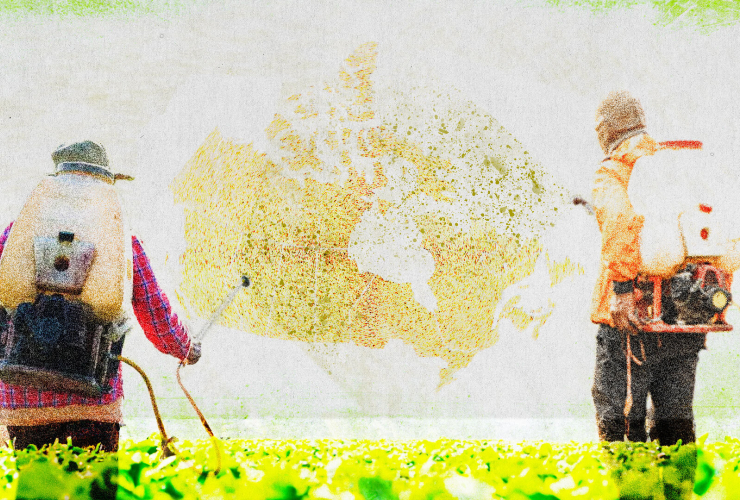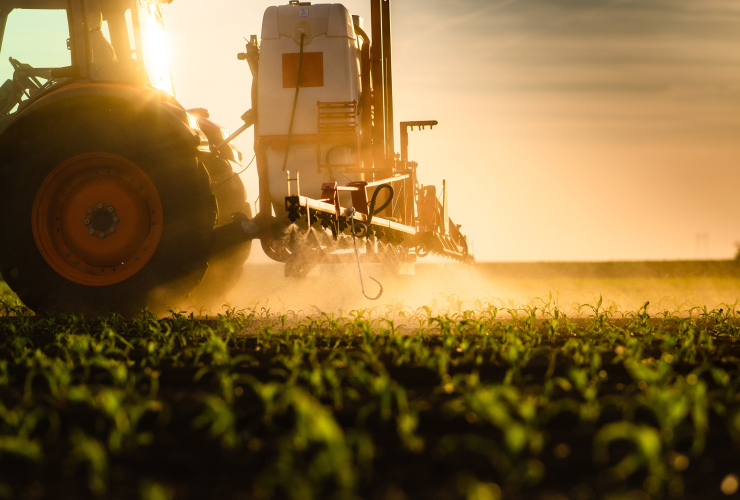Marc Fawcett-Atkinson

Journalist | Vancouver |
English
French
About Marc Fawcett-Atkinson
Marc Fawcett-Atkinson is a reporter and writer covering food systems, climate, disinformation, and plastics and the environment for Canada’s National Observer.
His ongoing investigations of the plastic industry in Canada won him a Webster Award's nomination in environmental reporting in 2021. He was also a nominee for a Canadian Association of Journalists's award for his reporting on disinformation.
Marc has previously written for High Country News, the Literary Review of Canada, and other publications on topics exploring relationships between people and their social and physical environments.
He holds an M.A. in journalism from the University of British Columbia and a B.A. in Human Ecology from the College of the Atlantic.
Canada’s proposed new pesticide and GMO law ‘beyond reckless’
Farms and forests across Canada could soon be sprayed with pesticides or planted with seeds from genetically modified organisms that haven't been evaluated for safety by the country's regulatory agencies.
Tofu bechamel. Vegan sushi. Cafeterias are doing the heavy lifting of plant-based diets
Tofu béchamel, plant-based sushi and wagyu "beef" made from peas, soy and fava beans. These and dozens of other plant-based dishes are poised to become increasingly common on the menus of public institutions as chefs try to reduce their kitchens' environmental and health impacts while whetting people's appetite for plant-based meals.
Where is Canada’s school food program as prices soar?
School food advocates fear the federal government might renege on its election promise to establish a national school food program.
Glyphosate — a herbicide darling in Canada — linked to cancer in rats
The research findings come amid growing concerns about the ability of Canada's pesticide agency to protect Canadians due to chronic transparency issues and accusations of pandering to the pesticide industry.
Feds not protecting Canadians from ‘undeniable’ pesticide danger
Calls for the federal government to overhaul its pesticide laws and regulatory agencies are being made in the wake of revelations that Canada's Pest Management Regulatory Agency failed to warn Canadians about the health dangers of a pesticide used on sports fields, golf courses and vegetable farms.
Northern leaders call for change as grocers fleece federal subsidy
Inuit leaders are calling for a complete overhaul of Canada's main program to reduce hunger in Northern Canada after revelations grocers in the region are pocketing up to half of a federal subsidy meant to reduce food prices.
Officials hid significant health risks of pesticide used on golf courses, sports fields
Canada's pesticide agency failed to warn Canadians their sports fields, golf courses and vegetable farms could expose them to dangerous levels of a pesticide so toxic that American authorities published an unusual public warning in May about its threat.
Grocers pocketing over half of federal hunger subsidy for the North
The $131-million annual Nutrition North subsidy is paid directly to most grocery retailers serving over 120 remote northern communities from Labrador to Yukon. Applicable only to certain foods and necessities like milk, eggs and diapers, the funds theoretically cover the region's high transportation costs and thus reduce food costs for consumers.
Grocery store gift cards a stepping stone to end hunger
Ensuring people can afford food through income support is better for their mental and physical health, generates less food waste and is more cost-effective than food banks when it comes to tackling food insecurity, new research suggests.
An inside look at the plot to make climate denial mainstream
Efforts by libertarian conspiracy theorists and climate change deniers to block climate initiatives in the Kootenay region of B.C. are threatening to engulf the province as the loose coalition plots ways to expand its ideology.










